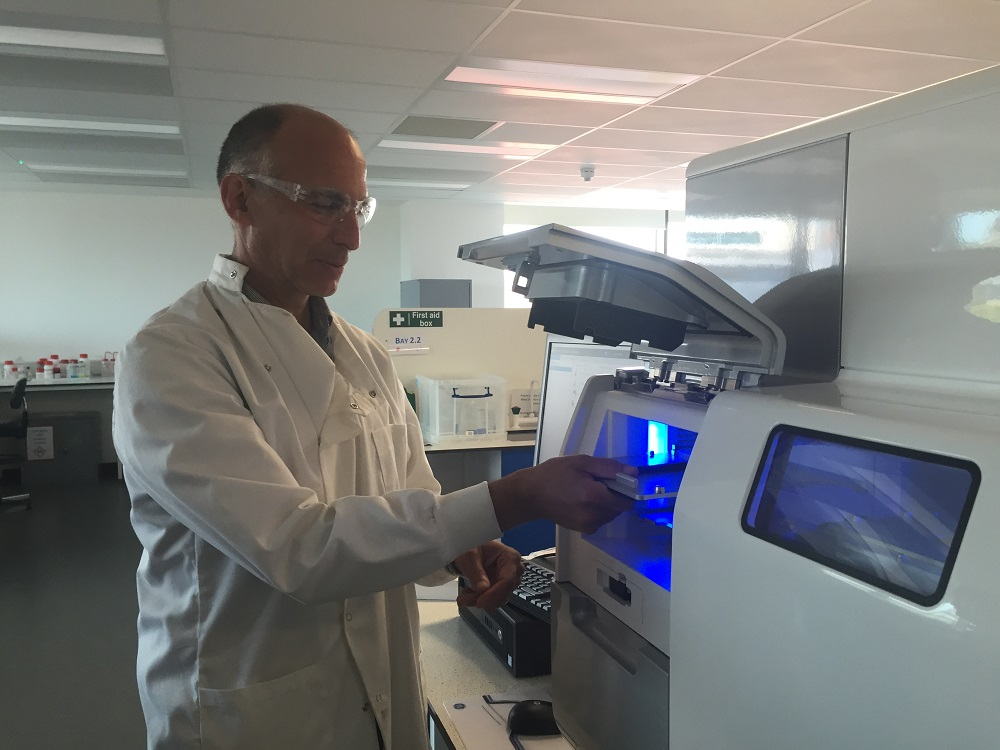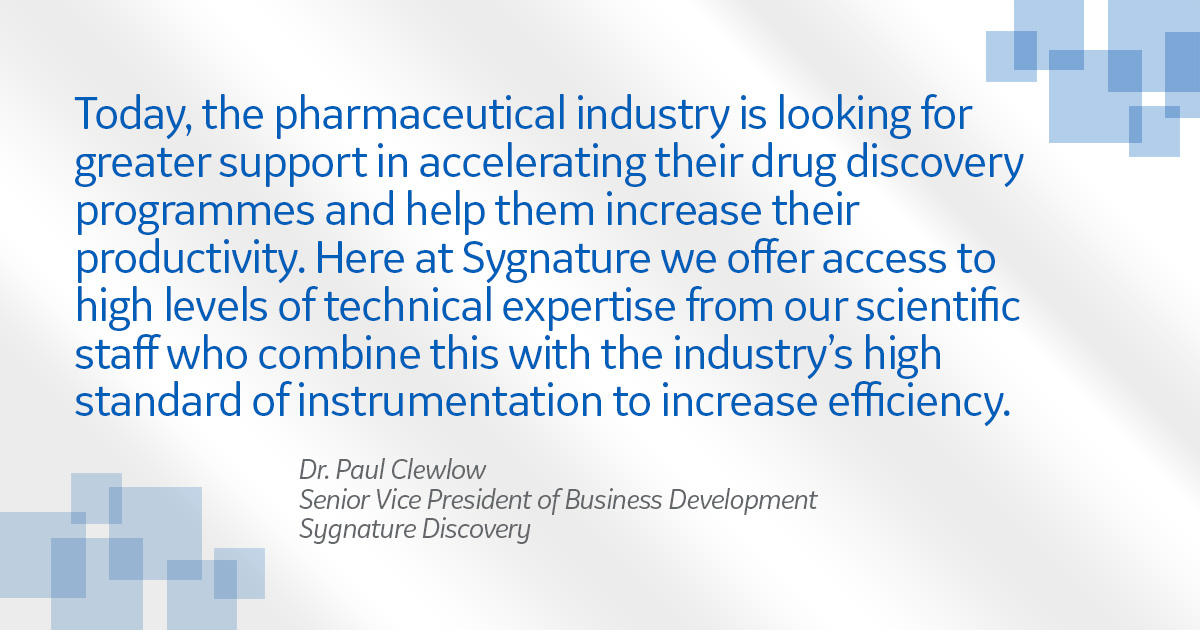Meet Sygnature Discovery, the company recruiting new scientists every week to help support ambitious client drug discovery programmes

Right now, scientists are working hard to find the next blockbuster drug. In laboratories across the world, millions of molecules are being screened against challenging drug targets. Those with potential will then be chemically optimised to improve their potency and selectivity and then assessed further in vitro and in vivo. How well does the molecule bind to the target receptor in the protein? Could they produce any off-target side-effects? How long will they remain within the body? Scientists need to answer all these questions – and more - before making the decision to advance their drug candidate into clinical trials. It is estimated that on average bringing a new drug onto the market takes ten to fifteen years and costs $2.6 Billion dollars. This is challenging and costly work.
However, in Nottingham in the UK, at the site where pioneering work was carried-out which led to the discovery of Ibuprofen, there is a company that is making a difference. Sygnature Discovery is an integrated drug discovery company supporting pharma and biotech companies around the globe with their pre-clinical drug discovery programmes by carrying-out drug research on their behalf. Sygnature’s mission: To accelerate drug discovery programmes and help get safe and effective novel treatments to patients more quickly and efficiently.
“Today, the pharmaceutical industry is looking for greater support in accelerating their drug discovery programmes and help them increase their productivity”, Dr Paul Clewlow, Sygnature’s Senior Vice President of Business Development explains. “Here at Sygnature we offer access to high levels of technical expertise from our scientific staff who combine this with the industry’s high standard of instrumentation to increase efficiency.”
Keen to find ways to boost their internal productivity to pass on to their clients, Sygnature recently purchased Cytiva’s Biacore 8K. The instrument uses Surface Plasmon Resonance (SPR) technology to help scientists understand how a potential drug interacts with a disease target.
Dr Scott Pollack, Associate Director of Biophysics and Enzymology at Sygnature explains how they are already seeing benefits. “The sensitivity of the 8K instrument is incredibly useful especially when our studies involve molecules exhibiting low binding levels” he explains. “We are planning projects that take advantage of its high-throughput compared to earlier Biacore models, such as the T200. We can now screen a compound library in a couple of experiments compared to multiple runs we had to carry out before.”

As a business, Sygnature has grown rapidly since opening in 2004. This year they made it onto the Financial Times list of Europe’s 1,000 fastest-growing companies and received a prestigious Queen’s Award for Enterprise for International Trade. They are taking on new staff every week and as they have approached full capacity in their current offices and laboratories, they have moved into a new £30M Discovery Building this year. Their growth has been facilitated by being located Nottingham’s BioCity, the UK’s largest bioscience incubator.
Sygnature are proud to be the first contract research organisation (CRO) in the UK to own a Biacore 8K but as Paul Clewlow explains, the purchase matches their ambitions as a company. “We need to continue to grow and evolve to win larger integrated projects and to do that we will look to diversify our offering. Now, we are focussed on discovering small molecule drug candidates, but peptides and other biologics are also becoming of interest to us.”
Today Sygnature employs over 150 laboratory-based scientists (80% with PhDs) and since 2011 have seen nine compounds they have worked with go through to clinical trials. Paul and Scott can testify to the spirit on site. “The technology we have to play with, the challenge of the projects and our international community of the staff make no two days the same,” remarked Scott. “It is a great place to do good science.”